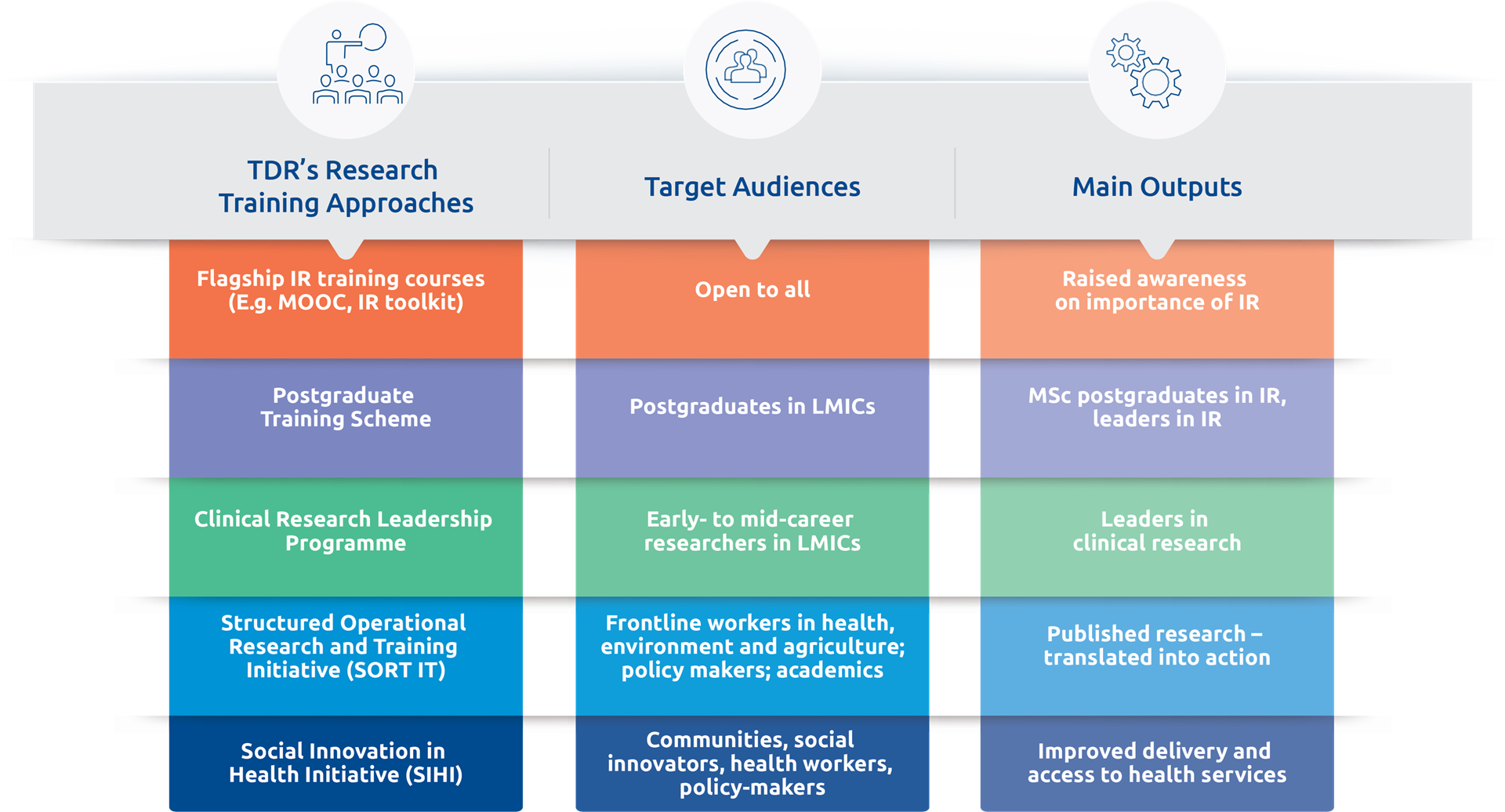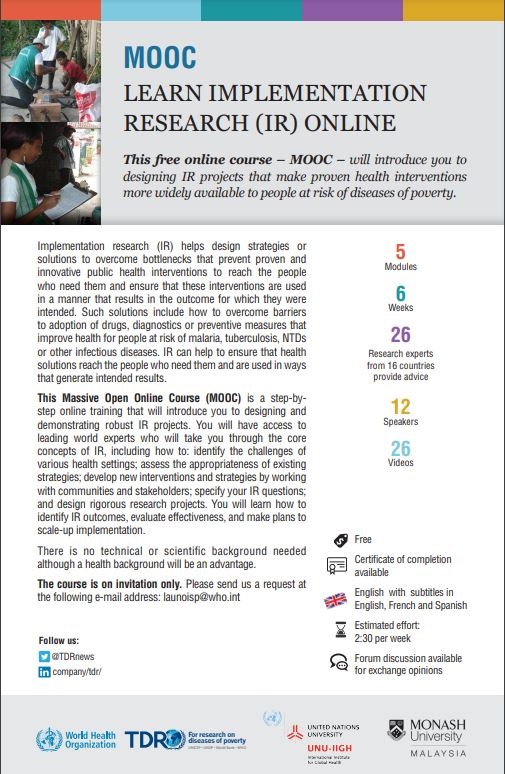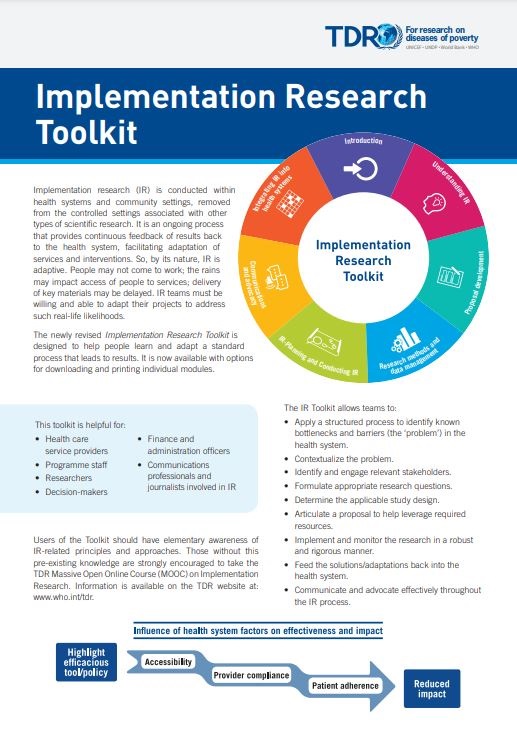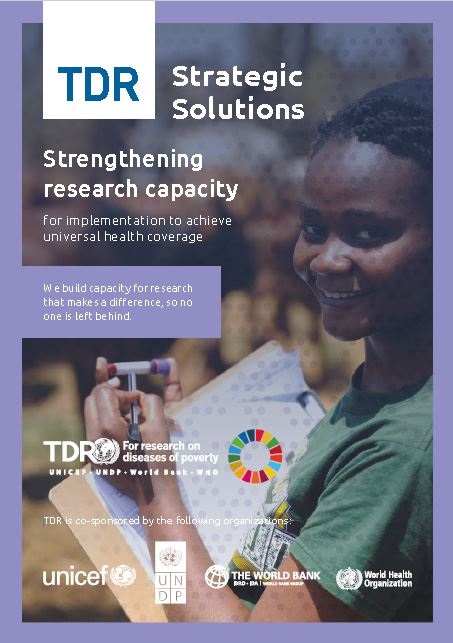
Strengthening research capacity
TDR
©
Credits
Strengthening research capacity
Research capacity strengthening activities are at the heart of the TDR Strategy 2024–2029, which aims to contribute to the achievement of the Sustainable Development Goals and universal health coverage. Within the context of the TDR vision, the overall goal is to strengthen the capacity of individuals, institutions and communities to produce research evidence useful for reducing the burden of infectious diseases of poverty in low- and middle-income countries. Collaborations with partner universities and training institutions in these countries are critical to jointly achieving this goal.

2024 highlights
Developing health research leadership in LMICs:
- A new Implementation Science Leadership Programme for Public Health Impact, to be hosted by Universitas Gadhah Mada in Indonesia and the University of Ghana, has been launched.
- The first cohort of 20 Clinical Research Leadership programme fellows (6 men and 14 women) were placed with their hosts, and the second cohort (8 men and 8 women) was selected. (A total of 128 fellows - 89 men and 39 women - were supported through the earlier Clinical Research and Development Fellowship programme.)
- A pilot programme to support career mentorship for leadership in research was successfully implemented, involving mentors and mentees from TDR-supported research capacity strengthening networks of alumni and institutions.
Developing and offering research training courses:
- A new IR Toolkit module on One Health has been launched.
- Foundations of implementation research, a free online lecture series on IR has been launched.
- TDR-supported regional training centres (RTCs) managed nine sessions of the IR MOOC, delivered in Arabic, English, French, Russian and Spanish, to more than 7300 registered participants.
- The RTCs organized nine in-person training courses for 345 researchers, health professionals, decision-makers and other stakeholders on topics covering the end-to-end process of implementation research to address infectious diseases of poverty.
- The postgraduate training scheme partner universities enrolled 37 new master’s students (15 men and 22 women) from 22 countries, of which six are French-speaking countries in West Africa. Forty-one students (20 men and 21 women) completed their Master in Public Health degrees. In 2024, TDR-supported grantees published 197 studies in peer-reviewed journals.
- As a member of the Access and Delivery Partnership (ADP), TDR advanced the partnership’s commitment to strengthening research capacity by supporting implementation research studies on care models for female genital schistosomiasis in Ghana, Malawi and the United Republic of Tanzania.
- The SORT IT module on communicating research findings was implemented in three SORT IT courses, resulting in the generation of 22 evidence briefs.
- A MOOC on incorporating an intersectional gender perspective in implementation research was rolled out as part of the overall implementation research MOOC, led by the regional training centre in Ghana.




